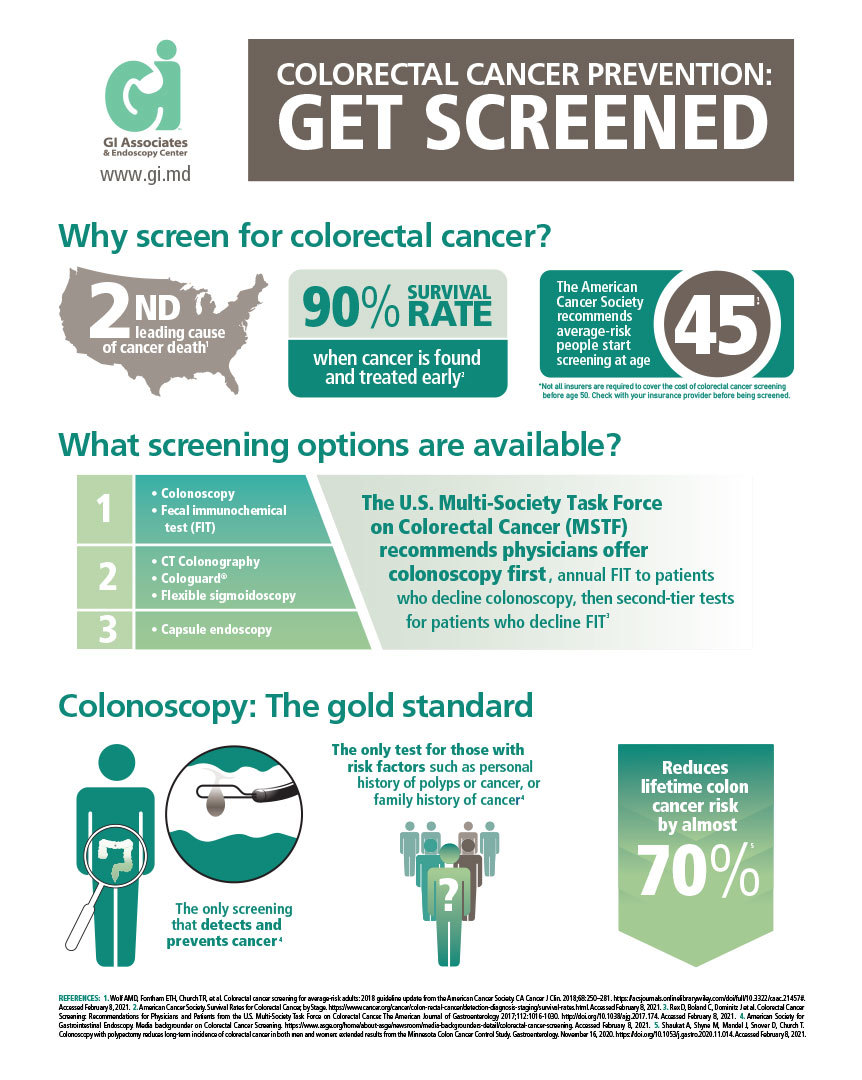
Colorectal cancer is a disease in which malignant (cancer) cells form in the tissues of the Colon or rectum. Colon cancer, also known as colorectal cancer or CRC, begins in the Colon or rectum. It is the second leading cause of death from cancer in the United States. The risk factors for CRC are not fully understood; Colon cancer mainly occurs in people over 50 years.
What are the Causes of Colon Cancer
Many factors may increase the risk of colorectal cancer. Some of these include:
- Age: Age is a significant risk factor for CRC. The majority of cases occur in people over 50 years old.
- Genetics: People with a family history of colon cancer are at greater risk for developing the disease.
- Race: Colorectal cancer is more common in African Americans than whites.
Diet: A diet high in red and processed meats may increase CRC risk. A diet high in fruits and vegetables may decrease the risk.
- Obesity: Being overweight or obese increases the risk of developing colon cancer.
- Physical inactivity: People who are physically inactive have a higher risk of developing colorectal cancer.
- Smoking
- Alcohol: Drinking alcoholic beverages increases the risk of Colon cancer.
Symptoms of Colon Cancer
The most common signs and symptoms of colorectal cancer include:
- Blood in stool
- Changes in bowel habits
- Abdominal pain or cramps
- Unexplained weight loss
- Weakness or fatigue
How to Prevent Colon Cancer
There are several things that people can do to reduce their risk of developing colorectal cancer.
- Get screened regularly
- Maintain a healthy weight
- Eat a healthy diet
- Be physically active
- Do not smoke
- Limit alcohol intake
- Get regular screenings
- Have a family history of colorectal cancer evaluated by a doctor
- Manage other health conditions
Treatment for Colon Cancer
There are many different treatments for Colon cancer. Treatment options depend on the stage of cancer, how healthy the person is, and other factors. Treatment may include:
- Surgery: The type of surgery depends on the tumor's location, how healthy the person is, and other factors.
- Chemotherapy: Chemotherapy is a treatment for cancer that uses drugs to kill cancer cells. Chemotherapy is often used to treat colorectal cancer that has spread to other parts of the body.
- Radiation Therapy: Radiation therapy is a treatment for cancer that uses energy from radiation to kill cancer cells.
- Targeted Therapy: Targeted therapy is a type of cancer treatment that uses drugs to attack cancer cells. These drugs are called targeted therapies because they attack only the cancer cells, not the normal cells.
- Hormone Therapy: Hormone therapy is a type of cancer treatment that uses hormones to kill cancer cells.
What is a Colonoscopy?
A colonoscopy is a medical procedure that uses a thin, flexible tube with a light and camera on end to look at the inside of your Colon. The Colonoscope is inserted through the anus and into the Colon. The doctor can see the entire Colon and take tissue samples for testing. Colonoscopies are used to screen for CRC, diagnose colorectal cancer, and treat Colon cancer.
Colonoscopy Procedure
The Colonoscopy Procedure is as follows:
- The colonoscopy person will be asked to remove their clothes and put on a hospital gown.
- They will be given medicine to help them relax (a sedative) and make them sleepy.
- The doctor will insert a Colonoscope into the anus and slowly guide it through the Colon.
- The Colonoscope has a light and camera on the end that allows the doctor to see the inside of the Colon.
- The doctor can also take samples of tissue for testing.
- The Colonoscope is removed, and the person is taken to a recovery area.
- They will be monitored for a while and then allowed to go home.
Conclusion
Colon cancer is a deadly but preventable disease. Colonoscopies should be done at least once every ten years, and people with a family history of colon cancer should get screened earlier - ideally before they turn 40.
